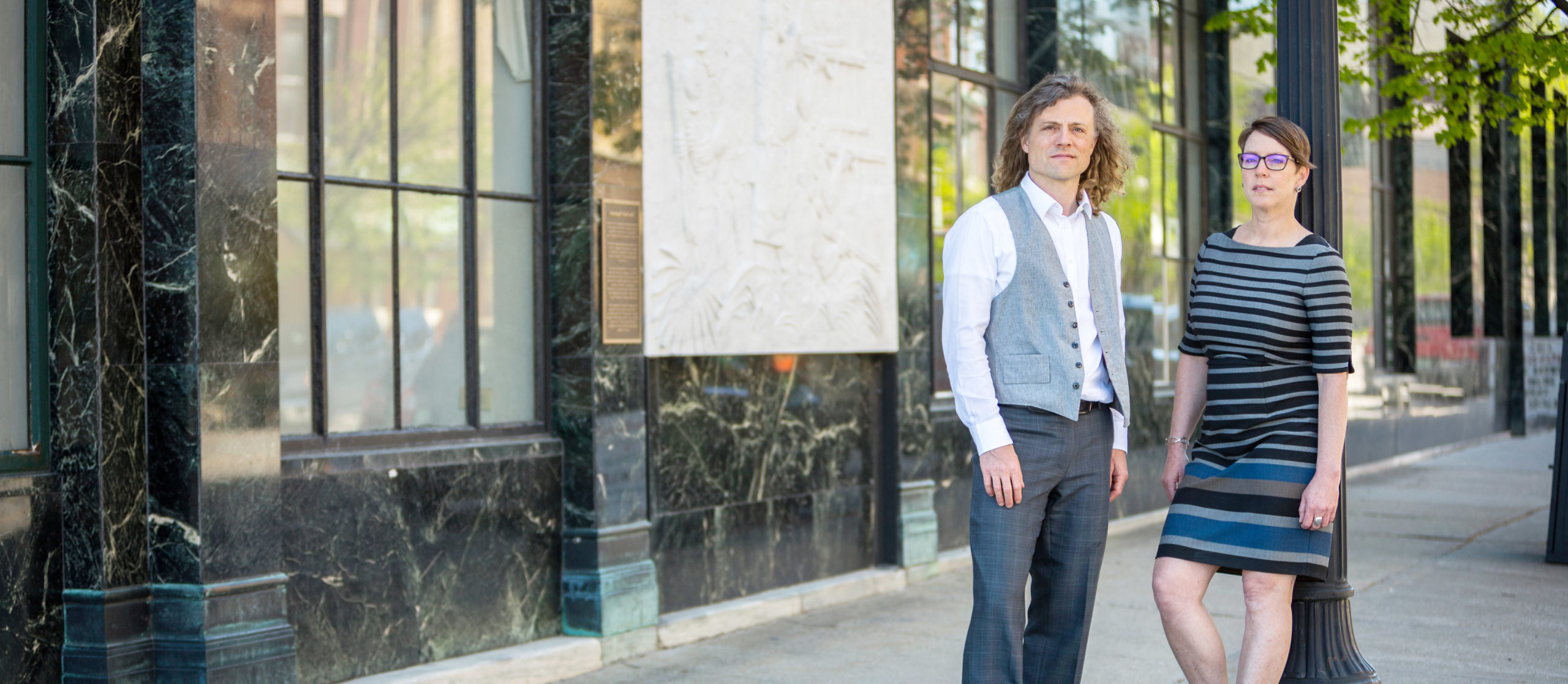
Rutland, VT Head Injury Attorney
Rutland, VT Head Injury Attorney
The head and brain are some of the body’s most valuable real estate and, if an injury to either occurs, the fallout and long-term consequences can be incredibly serious.
And traumatic head injuries are sadly common. According to the Centers for Disease Control and Prevention (CDC), approximately 57,000 people die every year in the United States from injuries to the head and brain. https://www.cdc.gov/traumaticbraininjury/data/tbi-deaths.html. Many (or most) of these injuries are preventable, and many occur because someone – a negligent driver, an impaired motorist, or a nursing home or trucking company – is not following the safety rules. When that occurs, the damages caused can be catastrophic, and legal help is almost always needed.
At the offices of Larson & Gallivan Law, we recognize that when a serious accident occurs–nearly any type of accident–the head and brain are often impacted. Whether that injury is a concussion, traumatic brain injury, or catastrophic brain injury, we are prepared to advocate for help and compensation. If you or a loved one has suffered a head injury, our Rutland, Vermont head injury lawyers can help. Please reach out to us today for a free consultation.
Head Injuries: Common Types and Consequences
Most head and brain injuries occur when the head is impacted with force–for example, if the head is struck with an object. Head injuries can refer to external, superficial wounds to the face, head, or skull, such as lacerations, bruises, and scalp injuries, or they can refer to a traumatic brain injury (TBI).
Many minor head injuries resolve within a few days with care and precautions, such as rest and sleep. In fact, many if not most of us have had minor concussions in falls or sports injuries or hitting our heads on the cellar stairs, and we have recovered well. However, over time and with multiple concussions, healing can be slower and permanent damage can occur.
What is the Difference Between a Concussion and a TBI?
A concussion is a mild traumatic brain injury. It is caused by a blow or jolt to the head or neck that causes the brain to impact the inside of the skull. The brain “bounces” off the bones of the skull, and as it does the nerves that make up the brain can stretch, twist and break. The brain structure and chemistry can change because of this shearing injury to the nerves and the other structures.
Meanwhile, a traumatic brain injury (TBI) refers to any injury to the brain caused by a blow (a “trauma”). It covers all brain injuries from a mild concussion to a deep brain injury with skull fractures and a patient who is in a coma. For that reason, it isn’t the most useful term – it describes such a broad range of outcomes.
That said, there is no real definition of the difference between the terms “concussion” and “traumatic brain injury.” Most people call a head injury that lasts a few days or less a “concussion.” You may have a concussion and not even know it – but your brain has suffered a mild injury just the same.
 While concussions are the most common type of TBI, and often only cause temporary symptoms, they can also cause severe problems for the sufferer. Concussions may be so serious that they disrupt a person’s thinking and cognition, memory and language, emotion and sensation, and more. This is most likely to happen to people who have had concussions or other brain injuries in the past. The more injuries the brain has had, the more easily it is damaged in the future. If you or your child has experienced a blow to the head from a sports injury, fall or car accident, it’s a good idea to get checked out. In southern Vermont (Rutland, Bennington and Windsor counties), we have two great resources for head injury treatment: the Concussion Clinic at Rutland Regional Medical Center (RRMC), https://www.rrmc.org/services/vermont-orthopaedic-clinic/services/concussion-clinic/ and the Sports Concussion Center at Dartmouth Hitchcock Medical Center (DHMC). https://www.dartmouth-hitchcock.org/ortho/sports-concussion-program.html
While concussions are the most common type of TBI, and often only cause temporary symptoms, they can also cause severe problems for the sufferer. Concussions may be so serious that they disrupt a person’s thinking and cognition, memory and language, emotion and sensation, and more. This is most likely to happen to people who have had concussions or other brain injuries in the past. The more injuries the brain has had, the more easily it is damaged in the future. If you or your child has experienced a blow to the head from a sports injury, fall or car accident, it’s a good idea to get checked out. In southern Vermont (Rutland, Bennington and Windsor counties), we have two great resources for head injury treatment: the Concussion Clinic at Rutland Regional Medical Center (RRMC), https://www.rrmc.org/services/vermont-orthopaedic-clinic/services/concussion-clinic/ and the Sports Concussion Center at Dartmouth Hitchcock Medical Center (DHMC). https://www.dartmouth-hitchcock.org/ortho/sports-concussion-program.html
Support groups and other resources are listed here:
https://www.dartmouth-hitchcock.org/supportive-services/traumatic_brain_injury_resources.html
Watch out for these signs of a concussion or TBI:
Common Causes of TBIs
 Traumatic brain injuries and other head injuries usually occur when the head is hit with force. This might happen as the result of a slip and fall accident, a motor vehicle accident, a pedestrian or bicycle accident, a motorcycle accident, a diving accident, a workplace accident, or another accident type. TBIs can also happen as a result of the brain being deprived of oxygen, which could happen in a drowning accident or as a result of medical malpractice.
Traumatic brain injuries and other head injuries usually occur when the head is hit with force. This might happen as the result of a slip and fall accident, a motor vehicle accident, a pedestrian or bicycle accident, a motorcycle accident, a diving accident, a workplace accident, or another accident type. TBIs can also happen as a result of the brain being deprived of oxygen, which could happen in a drowning accident or as a result of medical malpractice.
If someone else was to blame for your head injury, our lawyers will aggressively advocate for your rights, including your right to your full compensation award.
Damages Recoverable in a Personal Injury Claim
If you can prove that your head injury would not have occurred but for another’s negligence, you can recover compensation for the full value of your losses. Our law firm will fight to get you the compensation that you need for your:
- Medical expenses, including past and future medical expenses related to the injury;
- Lost wages, including loss of earning capacity and benefits;
- Pain, suffering, and emotional distress; and
- Any other economic or noneconomic losses associated with the injury.
Our attorneys will handle all elements of your claim on your behalf, including investigating your accident, gathering evidence, proving negligence and causation, and negotiating your settlement. We can also file a lawsuit on your behalf and represent you in court.
Call Our Law Firm Today for Your Free Consultation
A serious head injury can change your life. You don’t deserve a head injury, and you certainly don’t deserve to live with the economic losses associated with an injury. To learn more about your rights and how our lawyers can represent you, please call us directly today or send us a message at your convenience. We are here to improve your chances of recovering your full settlement amount, and we always work on a contingency fee basis. Reach us today to get started and schedule your free consultation.
Call Today! (802) 327-8458
